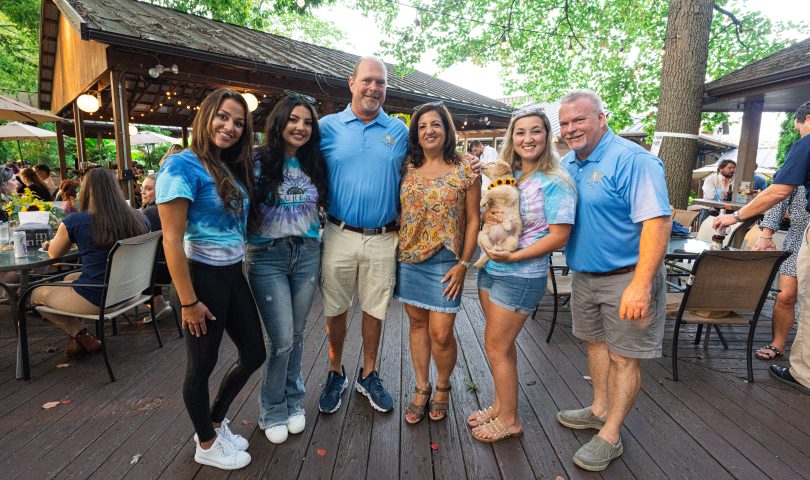As a student at University High School, Lauren Cole’s most-coveted fashion accessory, so it appeared, was the No. 8 jersey she wore while starring on the girls varsity lacrosse team.
Later, as a WVU graduate student, she took off the expensive designer coat she unwrapped from her parents that Christmas before and handed it over — just like that — to a classmate who had admired it, and a classmate to whom Lauren knew was struggling financially.
“She just said, ‘Hey, try it on,’” her father, Michael Cole, remembers.
“Then, she said, ‘You know what? That looks way better on you than it does on me. Why don’t you just keep it?’”
Which is why, he said, his not-so-fashioned-obsessed daughter would probably get a real charge out of what will be happening this Tuesday evening at Lakeview Golf Resort and Spa.
“Oh, yeah,” he said. “She’ll be looking down, and smiling.”
The second annual Lauren’s Wish Fashion Show will be 7 p.m. at Lakeview. Adding in corporate sponsors and individual tickets sold, the event has already been sold out, Michael Cole said.
Visit the Lauren’s Wish page on Facebook for full details.
Meanwhile, all 100% of the proceeds from the show are going to the aforementioned Lauren’s Wish Addiction Triage Center, a 28-bed facility located in Hazel’s House of Hope on Scott Avenue, at the former Ramada Inn.
Said center is why Cole is now in the benefit fashion show business.
The benefit golf tournament business, too.
And, the life-saving business — the ultimate benefit, he said.
“We don’t want any other family, anywhere, to go through what we went through.”
On July 9, 2020, Cole found his daughter slumped in the driver’s seat of her car in the parking lot of her apartment complex.
She was yet another one of West Virginia’s wrenching deaths delivered via fentanyl — in a state that is still Ground Zero at America’s crushing drug epidemic.
Fentanyl — in its prescription, medicinal form — is already 80 to 100 times more powerful than morphine.
In its illicit, street form, fentanyl can drop people just like that — which is what happened to Lauren, who had battled addiction for eight of her 26 years.
Her death was even more bitter to her dad, because of the above.
Poignantly, ironically, Lauren was a social worker who was good at her job.
She bought Christmas presents with money out of her purse for children she counseled, all the while helping her adult clients — among them the parents of those children — to quell their own addictions.
As she was struggling silently, though, her brain was scribbling the first notes of a public mission.
Three weeks before her death, she talked with her father about the effort that would become the triage center.
Rather than a “treat and street” approach — that is, saving a person from an overdose in the ER, and then promptly sending them back into the environment that brought them there in the first place — the triage center is a compassionate holding tank of sorts, Cole said.
The idea is to keep a client in a controlled environment, Cole said, while also convincing him to embark on a full regimen of treatment and counseling in a long-term facility.
Relapses are common, he said, and fentanyl is stingy with second chances.
Since its opening last Oct. 24, the Lauren’s Wish triage center has seen 137 patients, with 96% of them now in long-term care.
“We’re proud of that,” he said.
“But we’ve still got a long way to go.”
TWEET @DominionPostWV




